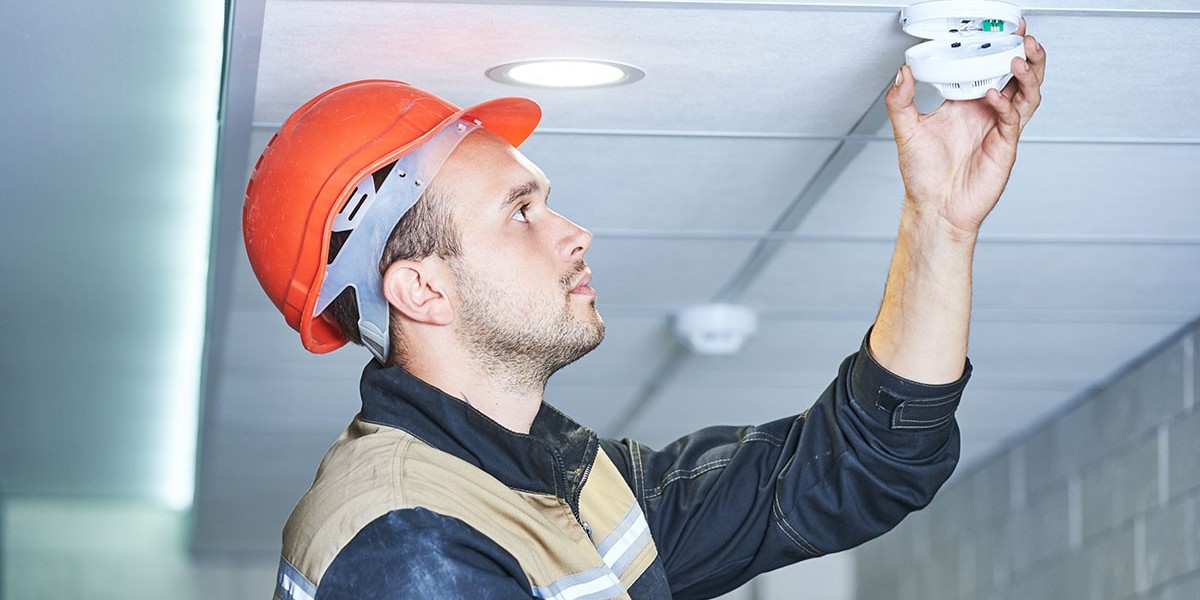Introduction
Proper smoke detector disposal is a critical yet often overlooked aspect of maintaining a safe and sustainable environment. Smoke detectors play an essential role in protecting our homes, but their disposal requires attention to both environmental and health factors. Improper disposal can lead to significant risks, including contamination of soil and water.
In this guide, we’ll explore eco-friendly and hassle-free solutions for smoke detector disposal, ensuring that you can responsibly manage this important task.
Understanding Smoke Detectors
Types of Smoke Detectors
There are two primary types of smoke detectors:
Ionization Smoke Detectors: These use a small amount of radioactive material (typically Americium-241) to detect smoke particles.
Photoelectric Smoke Detectors: These rely on light beams to detect smoke and do not contain radioactive materials.
Understanding the type of smoke detector you have is essential for determining the correct disposal method.
Components and Hazardous Materials
Smoke detectors contain various components, including plastic housings, electronic circuits, and batteries. Some components, like the radioactive elements in ionization detectors, require specialized handling.
Why Smoke Detector Disposal Matters
Environmental Impact of Improper Disposal
Discarding smoke detectors in regular trash can release harmful materials into the environment, contaminating soil and water. Batteries, for instance, can leak toxic substances when not disposed of correctly.
Legal Requirements and Regulations
Different regions have specific laws regarding the disposal of hazardous materials. Violating these regulations can lead to fines and environmental harm.
Identifying Hazardous Materials
Radioactive Elements
Ionization smoke detectors contain Americium-241, a radioactive material that poses health risks if not handled properly. Special disposal methods are required to manage this element.
Batteries and Other Toxic Substances
Many smoke detectors use batteries that contain heavy metals like lithium or cadmium. Proper removal and recycling of these batteries are crucial.
Preparing for Disposal
Checking Local Disposal Regulations
Before disposing of a smoke detector, check your local government’s guidelines. Some areas provide specific instructions or collection programs for hazardous waste.
Proper Handling and Storage
Store old smoke detectors in a safe, dry place away from children and pets until they can be properly disposed of or recycled.
Recycling Options
Specialized Recycling Programs
Many communities offer recycling programs for electronic waste, including smoke detectors. These programs ensure safe handling and disposal of hazardous components.
Manufacturers’ Take-Back Initiatives
Some manufacturers provide take-back programs. Contact the manufacturer listed on your smoke detector for information on returning the device.
Safe Disposal Methods
Municipal Hazardous Waste Collection Programs
Check if your municipality hosts hazardous waste collection events. These programs often accept smoke detectors.
Retail Drop-Off Locations
Some hardware and electronics stores accept smoke detectors for proper disposal. Call ahead to confirm participation.
DIY Steps for Safe Disposal
Removing Batteries Safely
Before disposal, remove and recycle the batteries separately. Most local recycling centers accept used batteries.
Securing Hazardous Parts
If possible, remove or secure hazardous components to prevent accidental exposure during disposal.
Legal and Ethical Considerations
Complying with Laws
Ensure your disposal practices align with federal, state, and local regulations. This is especially important for ionization smoke detectors.
Ethical Obligations
Proper disposal reflects a commitment to environmental stewardship and public safety.
Alternatives to Disposal
Donating Functional Detectors
If your smoke detector is still operational, consider donating it to local charities or organizations in need.
Reusing Components Responsibly
Explore creative ways to reuse non-hazardous parts, such as repurposing the plastic housing for crafts or projects.
Common Myths about Smoke Detector Disposal
Dispelling Misconceptions
Myth: Smoke detectors can be thrown in regular trash.
Fact: Most detectors contain materials that require specialized handling.
Myth: All smoke detectors are recyclable.
Fact: Recycling options depend on the type of detector.
Highlighting Best Practices
Following verified disposal methods ensures safety and environmental protection.
Case Studies
Successful Community Initiatives
Some communities have implemented successful recycling and disposal programs. For example, town-wide collection events have significantly reduced hazardous waste.
Lessons from Improper Disposal
Improper disposal incidents highlight the importance of awareness and adherence to best practices.
Innovations in Smoke Detector Recycling
Emerging Technologies
Innovations in electronic waste management are making it easier to recycle smoke detectors. These include automated sorting and material recovery systems.
Sustainable Product Design
Manufacturers are increasingly designing smoke detectors with sustainability in mind, using fewer hazardous materials.
FAQs on Smoke Detector Disposal
Can I throw my smoke detector in the trash?
No, most smoke detectors contain hazardous materials and require specialized disposal.
Where can I recycle my smoke detector?
Check local recycling programs or contact the manufacturer for take-back options.
What should I do with the batteries?
Remove and recycle them separately at a designated recycling center.
Are all smoke detectors hazardous?
Not all, but ionization detectors contain radioactive materials that need special handling.
Can I donate my smoke detector?
Yes, if it is still functional, consider donating it to organizations in need.
What happens if I improperly dispose of a smoke detector?
Improper disposal can harm the environment and violate legal regulations.
Conclusion and Call to Action
Proper smoke detector disposal is essential for protecting the environment and ensuring public safety. By following the eco-friendly and hassle-free solutions outlined in this guide, you can responsibly manage the disposal of these devices.
Let’s work together to create a cleaner, safer world. Always dispose of smoke detectors correctly, and encourage others to do the same.







